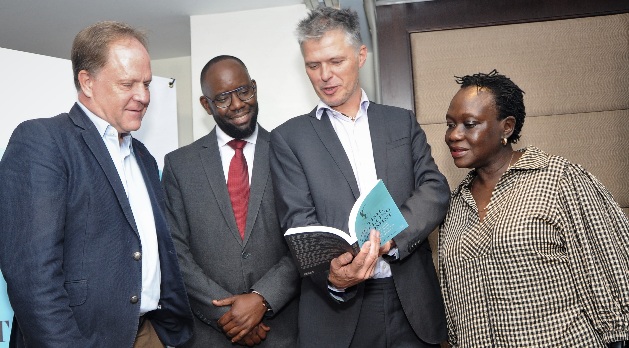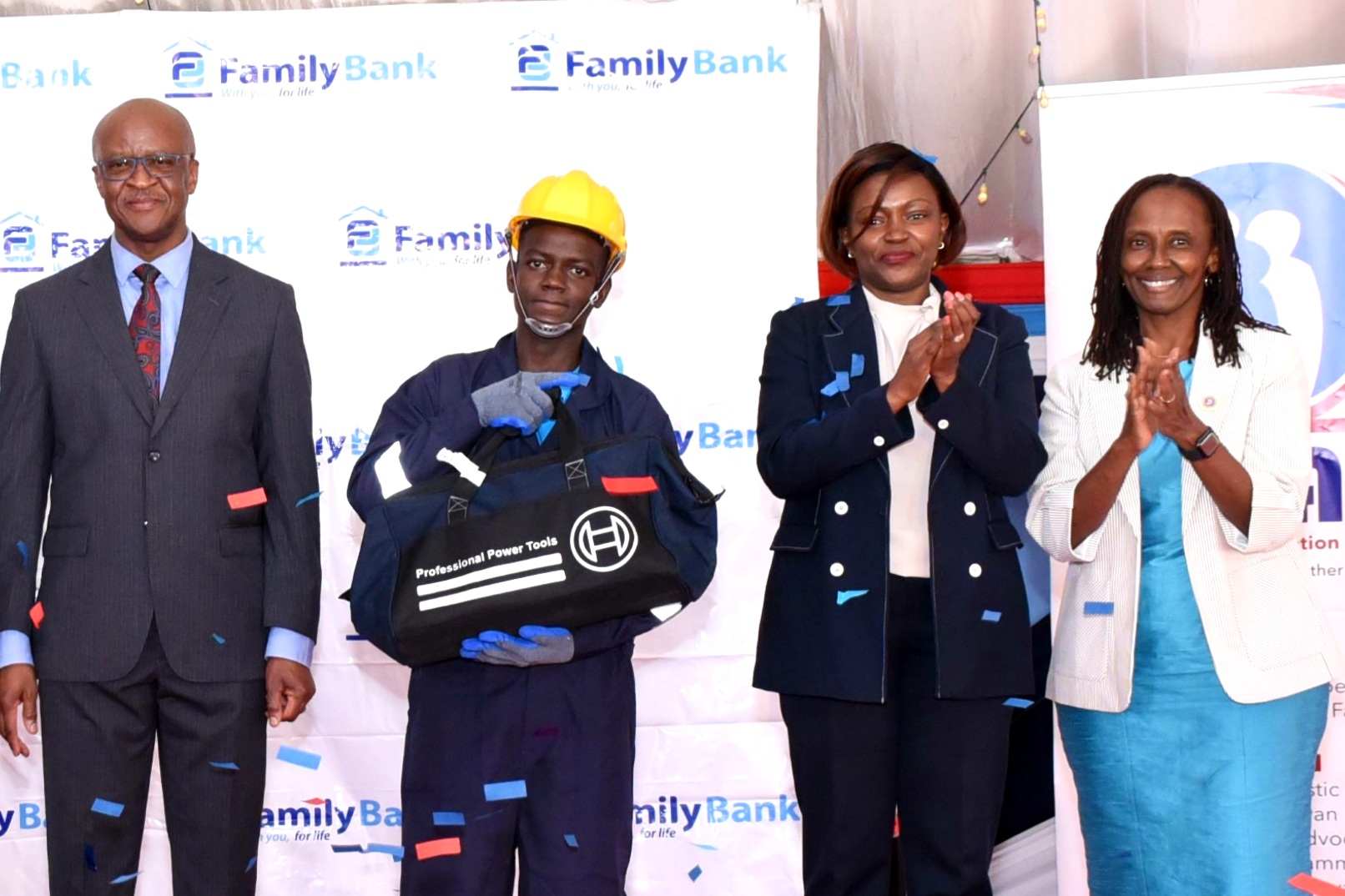Aga Khan University’s Institute for Educational Development, East Africa (AKU-IED EA) celebrated the graduation of its eighth cohort, comprising over 1,200 students, in partnership with the Kenya Education Management Institute (KEMI).
Notably, 26 of these graduates were fully sponsored by AKU-IED EA under the Foundations for Learning Project.
This significant milestone underscores the transformative journey of these graduates who have successfully completed a rigorous programme aimed at enhancing their leadership and management skills within the education sector. The knowledge and skills acquired are set to make a profound impact on the quality of education in Kenya, contributing to the development of effective and efficient educational institutions.
“As leaders, you must not only manage resources and administer policies, as is often the norm; you must also champion teaching and learning. Create environments where teachers are supported, innovation is encouraged, and students are inspired to reach their full potential,”
said Professor Jane Rarieya, Dean of AKU-IED, East Africa.
The two-year diploma programme is dedicated to promoting gender equity, embracing diversity, fostering inclusion, and championing instructional leadership
The Kenya Education Management Institute remains committed to its mission to provide high-quality education and training for educational leaders and managers. Its programmes are designed to equip education professionals with the tools and expertise necessary to lead and manage educational institutions effectively, fostering a culture of excellence and continuous improvement.
“Since 2011, KEMI has been engaged in capacity building and management programmes for institutional managers. This has been realized through the regional programme and other short-term capacity-building initiatives,”
acknowledged by Dr Maurice Odondo, Chief Executive Officer of KEMI.
AKU continues to strengthen its partnerships with the ministries of education in East Africa, educational institutions, donors and other education stakeholders. These collaborations focus on capacity building for teachers through needs-based professional development courses and the flagship Master of Education programme.






ALL IS NOT WELL AT MACHAKOS TECHNICAL INSTITUTE FOR THE BLIND
As parents and stakeholders of Machakos Technical Institute for the Blind we urge the media to expose the rot and if possible government Agencies to probe Principal Priscilla Nduku and Accountant Patrick Mutula.Nduku has overstayed at the institution that is why there are cases of mismanagement
The 2020-2021,2021-2022 audit reports shows theft of funds
For example,the statement of financial position as at 30 June, 2020 reflects total net assets and liabilities of Kshs.377,854,127.
Further, the statement of financial performance for the year ended 30 June, 2020 reflects Kshs.71,447,975 and Kshs.60,525,337 in respect to total revenue and expenditure respectively for the year with a resultant surplus of Kshs.10,922,638.
However, Management did not provide for audit, cashbooks, ledgers, trial balance and schedules to support the balances
Statement of financial performance reflects total revenue of Kshs.71,447,975 in the year under review.
However, a casting of the balances results to a total of Kshs.71,446,975 and the variance of Kshs.1,000 was not explained.
Further, the statement reflects a total expenses comparative balance of Kshs.66,703,893 while a recasting of the expenses totals to a balance of Kshs.67,192,393 resulting a casting error of Kshs.488,500.
The statement reflects general expenses balance of Kshs.41,556,206 while Note 22 to the financial statement reflects a balance of Kshs.41,232,505 resulting to an unexplained and unreconciled variance of Kshs.323,701.
In addition, Note 22 to Note 25 do not correspond to the respective notes to the financial statements.
The statement of financial performance reflects rental revenue from facilities and equipment, other income, use of goods and services and employee costs comparative balances of Kshs.510,000, nil balance, Kshs.935,806 and Kshs.4,371,056 which differ with balances of Kshs.980,000, Kshs.532,806, Kshs.52,944,265 and Kshs.9,822,290 reflected in Note 12,14,15 and 16 respectively.
The statement reflects repairs and maintenance and grants and subsidies comparative balances of Kshs.680,641 and Kshs.488,500 respectively while the respective Note 19 and Note 22 reflects balances of Kshs.1,667,610 and Kshs.52,944,165.
Further the grants and subsidies comparative balance of Kshs.680,641 varies with the nil balance reflected in the 2018/2019 audited financial statements.
The statement reflects contracted services balance of Kshs.453,600 in the year under review and a nil comparative balance.
However, Note 20 to the financial statements reflects a balance of Kshs.303,600 for the year 2019/2020 and Kshs.488,500 for 2018/2019 financial year.
The statement of financial position reflects total assets and total net assets and liabilities balances of Kshs.377,854,127 and Kshs.377,854,126 respectively.
However, a recasting of the amounts totals to Kshs.378,075,821 and Kshs.377,433,019 resulting to variances of Kshs.221,694 and Kshs.421,107 which were not explained or supported. In addition, no explanation was provided for the unbalanced statement of financial position.
The statement of financial position reflects long term receivables from exchange transactions balance of Kshs.350,228,860 in both the year under review and 2018/2019 while the disclosure Note 27(b) reflects nil balances for both years.
The statement reflects a balance of Kshs.4,650,000 in respect to inventories while the disclosure Note 29 has a nil balance.